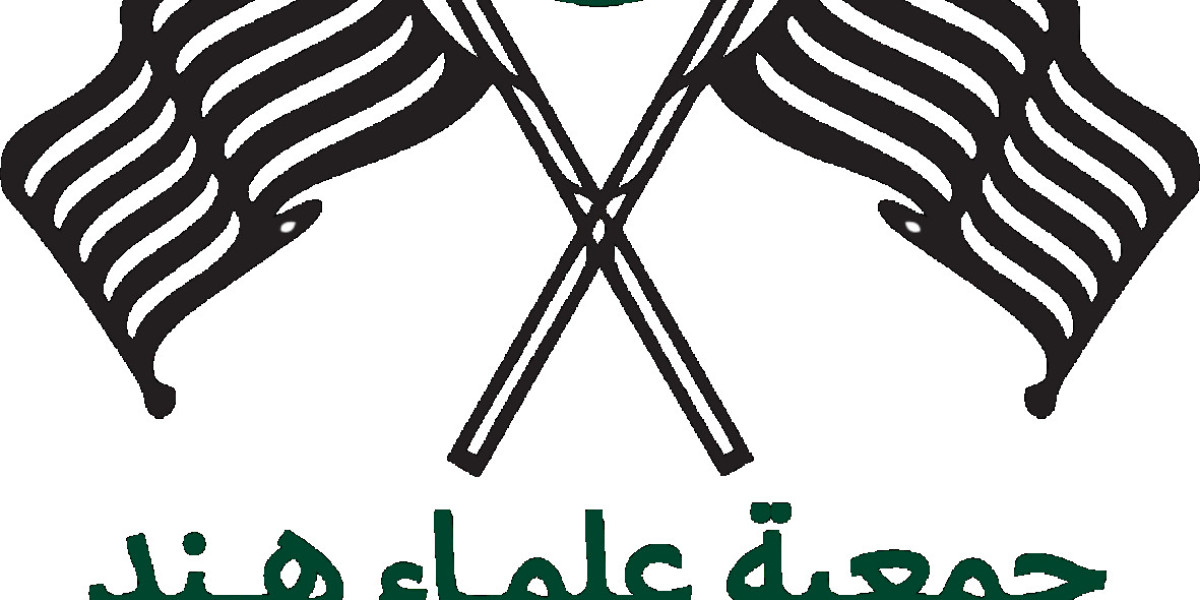India, home to the world’s second-largest Muslim population, is a nation rich in diversity and culture. Yet, many within the Muslim community face barriers in education, employment, and access to social justice. In this context, Muslim NGOs in India have emerged as essential drivers of change—serving not just as charitable organizations, but as beacons of empowerment, especially through educational outreach.
Among the leading voices in this movement is Jamiat Ulama-i-Hind, a pioneering Muslim NGO committed to uplifting the community through faith-based education, scholarships, legal support, and social reform.
In this blog, we explore:
The role of Muslim NGOs in India’s development
The current landscape of Muslim education in India
The transformative work of Jamiat Ulama-i-Hind
How Islamic principles are being used to promote academic excellence
How you can support or benefit from these initiatives
The Role of Muslim NGOs in India
A Muslim NGO (Non-Governmental Organization) is an independent, faith-guided body that serves the socio-economic and spiritual needs of the community. These organizations work on principles rooted in Islamic values like compassion (rahmah), justice (‘adl), and charity (zakat/sadaqah).
Key Functions of Muslim NGOs:
Offering financial aid and scholarships to underprivileged students
Providing legal aid for victims of injustice and minority discrimination
Running healthcare camps and relief programs during disasters
Promoting vocational training and skill-building
Supporting madrasah and mainstream education for children and youth
In a complex and often inequitable system, these NGOs act as bridges between religious tradition and modern development—a lifeline for millions who are otherwise left behind.
Spotlight: Jamiat Ulama-i-Hind – A Leading Muslim NGO in India
Jamiat Ulama-i-Hind stands out as one of India’s most respected Muslim NGOs. Founded in 1919, its mission was initially rooted in religious leadership, but over the past century, it has evolved into a comprehensive community service organization.
Jamiat’s Areas of Impact:
Educational scholarships for poor and meritorious students
Legal representation for victims of hate crimes and wrongful arrest
Disaster relief efforts in flood, earthquake, and pandemic zones
Women’s empowerment programs
Rehabilitation of riot victims and marginalized families
Through its initiatives, Jamiat has not only preserved Islamic identity but has also equipped Muslims in India with the tools to thrive in modern society.
The State of Muslim Education in India
Education is the cornerstone of any progressive society, and yet, educational attainment among Muslims in India remains alarmingly low.
Key Challenges:
According to the Sachar Committee Report, Muslims have lower levels of literacy and higher dropout rates compared to other communities.
Economic constraints prevent many families from affording quality education.
Some areas lack schools that are culturally and religiously inclusive.
There is still a disconnect between traditional madrasah education and modern academic requirements.
Despite constitutional guarantees, systemic barriers persist—and this is where Muslim NGOs step in to make a meaningful difference.
Jamiat’s Education-Focused Programs: Scholarships and Beyond
One of the most impactful wings of Jamiat’s mission is its Educational Scholarship Program, designed to support students from economically disadvantaged backgrounds.
Who Can Benefit:
Students from primary school to postgraduate levels
Individuals pursuing technical, medical, legal, or religious studies
Candidates from rural, urban, and conflict-affected zones
Features of the Program:
Financial assistance for tuition, books, and hostel expenses
Mentorship and academic counseling
Collaboration with local institutions to ensure smooth disbursal
Focus on merit and need-based selection
Impact Example:
Take the case of Sana, a student from West Bengal who aspired to study law. Her family couldn’t support her financially. Through Jamiat’s scholarship, she was able to complete her LLB and now works in community legal aid—giving back to the very people she once stood among.
This ripple effect of education transforms not just individuals, but entire communities.
Blending Traditional and Modern Education
One of the strengths of Muslim NGOs like Jamiat is their ability to bridge the gap between Islamic education and contemporary academics.
The Modern Madrasah Approach:
Many madrasahs today integrate English, Science, Math, and Computer Education alongside Qur’anic and Hadith studies.
Jamiat supports the modernization of madrasahs, ensuring students can transition to mainstream schools and colleges.
Teacher training workshops help improve instructional quality and inclusivity.
This integrated model helps preserve religious identity while opening doors to career opportunities and higher education.
Legal Aid and Social Justice: Education’s Critical Companion
Educational progress cannot happen in a vacuum. Often, Muslim students and families face legal discrimination, wrongful arrests, or harassment, especially in communally sensitive regions. Jamiat recognizes this and offers legal support alongside its educational initiatives.
Legal Services Include:
Court representation in communal violence cases
Property and housing disputes
Support in police complaints and FIRs
Legal literacy programs for youth and women
By combining education and legal empowerment, Jamiat ensures its beneficiaries are not only literate—but also aware, confident, and protected.
Women and Girls: Unlocking a Future Through Education
Historically, Muslim girls in India have faced additional hurdles in accessing education—be it due to financial hardship, cultural barriers, or safety concerns. Jamiat is working to reverse this trend.
How?
Offering exclusive scholarships for female students
Encouraging vocational training and distance learning for homemakers
Ensuring safe, gender-sensitive environments in affiliated institutions
Supporting female madrasa graduates in transitioning to modern careers
These efforts are crucial because educating a girl often results in educating a family and a future generation.
The Broader Vision: Empowerment Through Faith
At its core, Muslim education as supported by Jamiat is not just about degrees and jobs. It’s about building self-worth, identity, and spiritual resilience.
Islamic values are emphasized alongside academic excellence.
Students are encouraged to become role models and community leaders.
The ultimate goal is to create individuals who can navigate the modern world without losing their faith or cultural roots.
This fusion of faith and learning represents a sustainable, culturally respectful model of empowerment.
How You Can Get Involved
Whether you’re a student, parent, donor, or just someone who cares—there are many ways to support or benefit from these efforts.
As a Student or Parent:
Apply for scholarships at jamiat.co.in
Encourage children to pursue both Islamic and mainstream education
Seek legal help if facing discrimination
As a Donor or Supporter:
Contribute your Zakat or Sadaqah to support scholarships
Sponsor a student’s education for a year
Help raise awareness about Muslim NGOs and their work
Even sharing this message within your circles can inspire support, donations, or applications that change lives.
Conclusion: Faith, Education, and the Promise of Progress
India’s Muslim NGOs, especially those like Jamiat Ulama-i-Hind, are proving that faith and progress are not mutually exclusive. By promoting Muslim education in India through scholarships, modern madrasahs, and community advocacy, they are building a foundation for lasting change.
In a world that often divides, these organizations unite—through compassion, knowledge, and service. If we want a future where all children, regardless of background, have equal opportunities to succeed, then supporting Muslim education and faith-based NGOs is not just important—it’s essential.
Frequently Asked Questions (FAQ)
1. What is a Muslim NGO and what does it do?
A Muslim NGO is a non-profit organization rooted in Islamic values, working to uplift communities through education, healthcare, legal aid, and poverty alleviation. In India, they play a vital role in bridging socio-economic gaps for Muslims and other marginalized groups.
2. How can I apply for an educational scholarship from Jamiat?
Visit jamiat.co.in/educational-scholarships and follow the instructions to apply. Eligibility is based on merit and financial need. Supporting documents such as income certificates and academic records are usually required.
3. Are these scholarships available for all levels of education?
Yes, Jamiat provides scholarships for students ranging from primary education to postgraduate levels. It also includes support for vocational, technical, and religious education.
4. Do Jamiat’s programs benefit non-Muslims as well?
While the focus is on the Muslim community, some programs—especially disaster relief and legal aid—are offered to all, regardless of religious background.
5. Can I donate my Zakat to Jamiat’s scholarship fund?
Absolutely. Jamiat accepts Zakat and uses it to fund educational, healthcare, and welfare programs in accordance with Islamic guidelines.
6. Is Madrasah education still relevant in today’s job market?
Yes—especially when paired with modern subjects. Jamiat supports madrasah modernization to help students gain both spiritual grounding and employable skills.
















